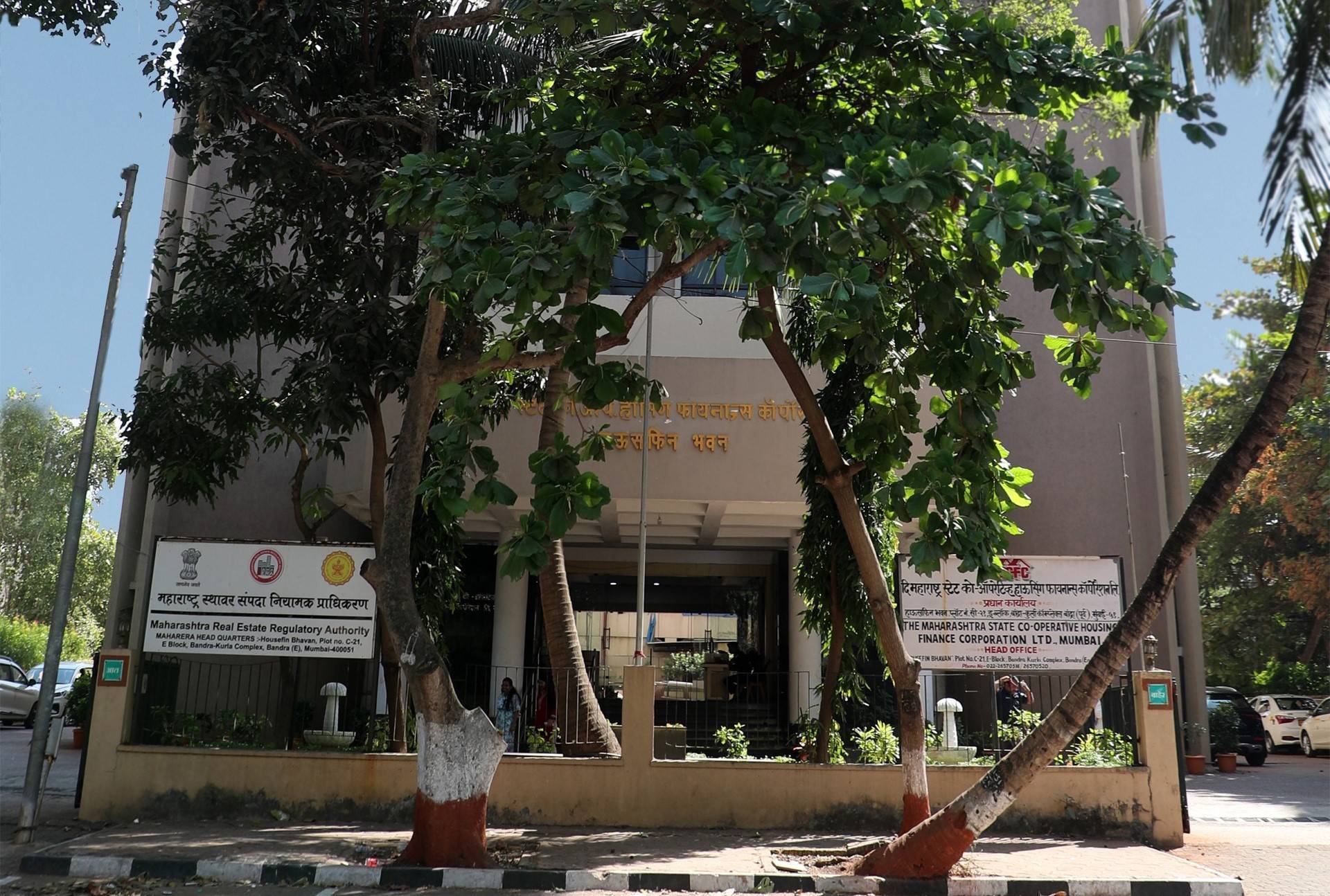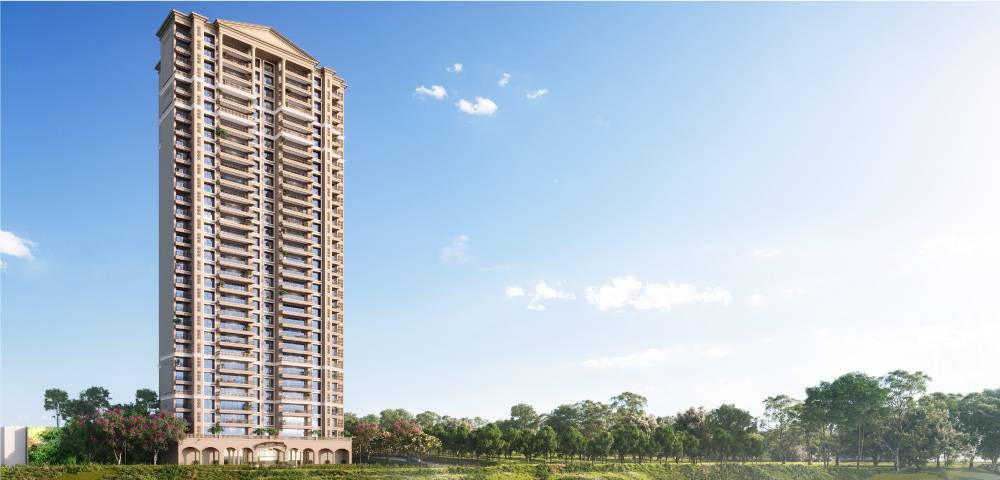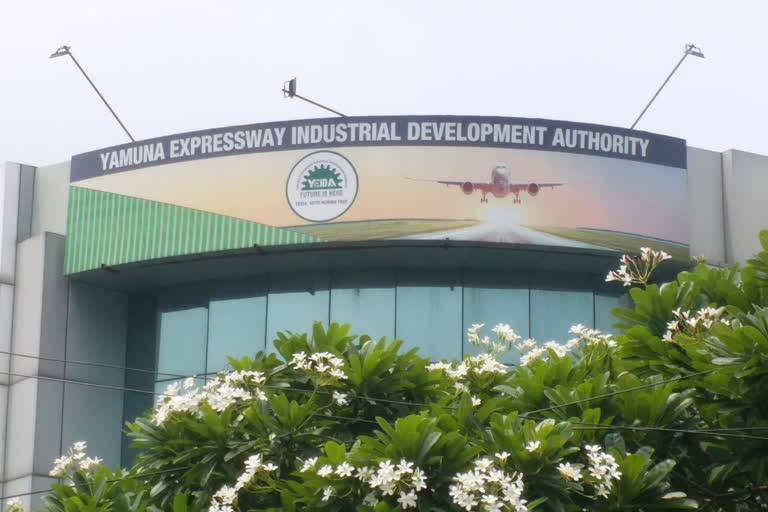Over 29,000 complaints have been filed by homebuyers against 5,508 real estate projects in Maharashtra, according to data shared by the Maharashtra Real Estate Regulatory Authority (MahaRERA). These complaints have accumulated since the regulatory body was established in May 2017 under the Real Estate (Regulation and Development) Act, 2016, with the aim of bringing greater transparency and accountability to the real estate sector. A closer look at the complaint data reveals that a majority of these grievances are related to projects that began before RERA came into force in the state.
Of the total 5,508 projects that have been the subject of complaints, 3,473 were ongoing before the implementation of MahaRERA, while the remaining 2,035 projects were registered after the regulatory system was introduced. This suggests that regulatory mechanisms have had some impact on newer projects, but issues remain widespread across the sector. In terms of numbers, out of the 29,374 total complaints filed by homebuyers, 23,908 were linked to pre-RERA projects, and 5,466 pertained to those initiated after RERA’s rollout.
MahaRERA data further shows that the regulatory authority has disposed of 21,888 of the 29,374 complaints filed since its inception. This translates to a disposal rate of nearly 74 percent. In addition to formal adjudication, a significant number of homebuyers and developers have chosen to resolve their issues through the conciliation mechanism set up by the authority. A total of 6,474 complaints have been referred for conciliation to date, out of which 2,006 cases have been successfully resolved through this route. According to MahaRERA officials, this alternative dispute resolution process has been gaining traction as a more efficient and amicable method for handling buyer-developer conflicts.
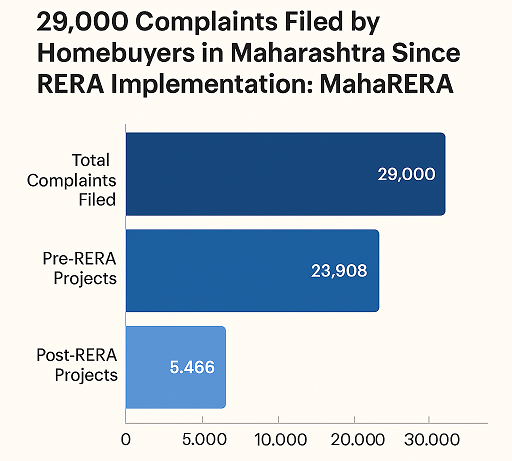
MahaRERA Chairman Manoj Saunik noted that the authority is actively working to improve complaint resolution and that 81 percent of the complaints filed against pre-RERA projects have already been disposed of. For post-RERA projects, the disposal rate stands at 46 percent. He emphasized that the authority accommodates both online and physical hearings, depending on the preference of the complainant. Many homebuyers, particularly Non-Resident Indians (NRIs), prefer online hearings for their convenience. Saunik added that MahaRERA continues to remain open to conducting physical hearings whenever requested.
Since 2017, MahaRERA has registered a total of 50,131 real estate projects across Maharashtra, the highest number of registrations by any state-level real estate authority in India. Of these, 17,280 projects have been marked as completed, with developers submitting all necessary documentation for verification. However, over 13,300 projects have been declared lapsed due to reasons such as delays and non-compliance with regulatory requirements. These lapsed projects remain a key area of concern for the regulatory body.
The geographical distribution of registered projects shows that Pune district leads with 12,788 registered projects, followed by Thane with 6,746, Mumbai suburbs with 5,907, and Raigad with 5,360. Together, these regions account for a significant portion of the total project registrations in the state. Maharashtra’s contribution to the nationwide RERA database is also notable. According to data from the Ministry of Housing and Urban Affairs shared by MahaRERA, Maharashtra alone accounts for about 35 percent of all housing projects registered under RERA across the country. Out of a total of 1,44,617 housing projects approved nationwide, over 50,000 are in Maharashtra. Tamil Nadu follows with 27,609 projects, and Gujarat ranks third with 15,322.
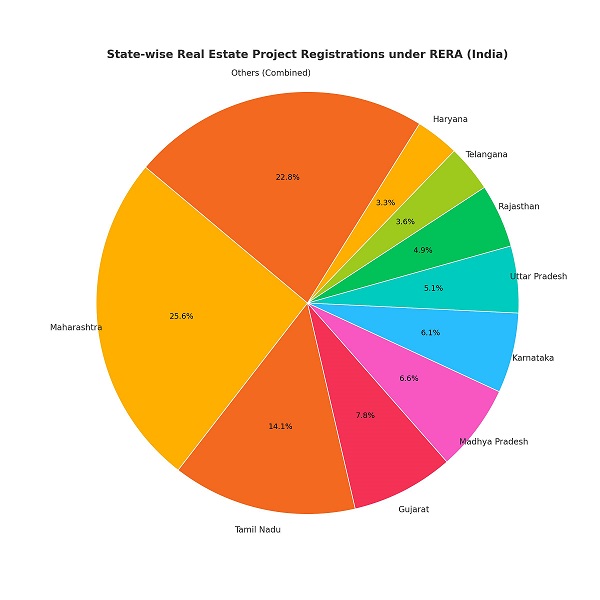
MahaRERA’s efforts since its establishment have centered on streamlining project registration, monitoring project progress, and offering platforms for dispute resolution. With ongoing enforcement and structural reforms, the authority continues to address legacy issues in the real estate sector while working to improve buyer protection and ensure compliance from developers.
Image source- maharera

